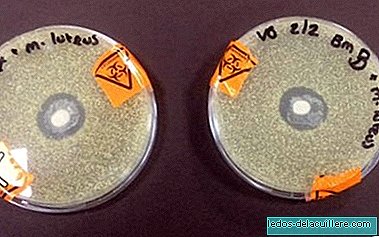
The American College of Obstetrics and Gynecology suggests, that after the increase in babies born with Down Syndrome in young mothers (under 35), It is the future moms who decide if they want to have invasive prenatal tests to determine the chances that the baby suffers from a genetic disease, how old they are.
So far, amniocentesis or Corion biopsy, are performed on pregnant women from 35 years of age, these tests identify if there are abnormalities of chromosomal or metabolic type with much more reliability than non-invasive tests, which only Show the odds.
The risk of having a child with Down Syndrome increases with age, at 20 years of the mother, one of every 1,667 babies with this chromosomal abnormality is born, at 25 years one of every 1,250, at 35 one of every 385 and at age 40 one in 106 approximately. The American researchers support the detailed monitoring of the women and point out that it is the mother who decides if she undergoes the invasive tests assessing the possibility that the baby will be born with an anomaly if she does not undergo the test or suffer a spontaneous abortion for practicing it, without forgetting that everything can also go well.
The guide also advocates that doctors be more informed about the value of each test and the factors that must be taken into account to decide which of them is the most recommended. Thus, during the first trimester, Nuchal Translucency should be performed to measure the thickness of the neck of the fetus, in addition to the biochemical analysis, if the risk of chromosomal abnormalities is noticed, the pregnant woman could be offered the possibility of having amniocentesis or chorionic villus biopsy.
In this regard, the director of the Spanish Collaborative Study of Congenital Malformations (ECEMC) of the Carlos III Institute, Mª Luisa Martínez Frías, states that in Spain, thanks to the biochemical tests systematically used and the different ultrasound markers (nose bone, size of the nose nuchal fold, etc.), a study has been published that shows the reduction of births of babies with congenital anomalies of young women.
What do you think?











